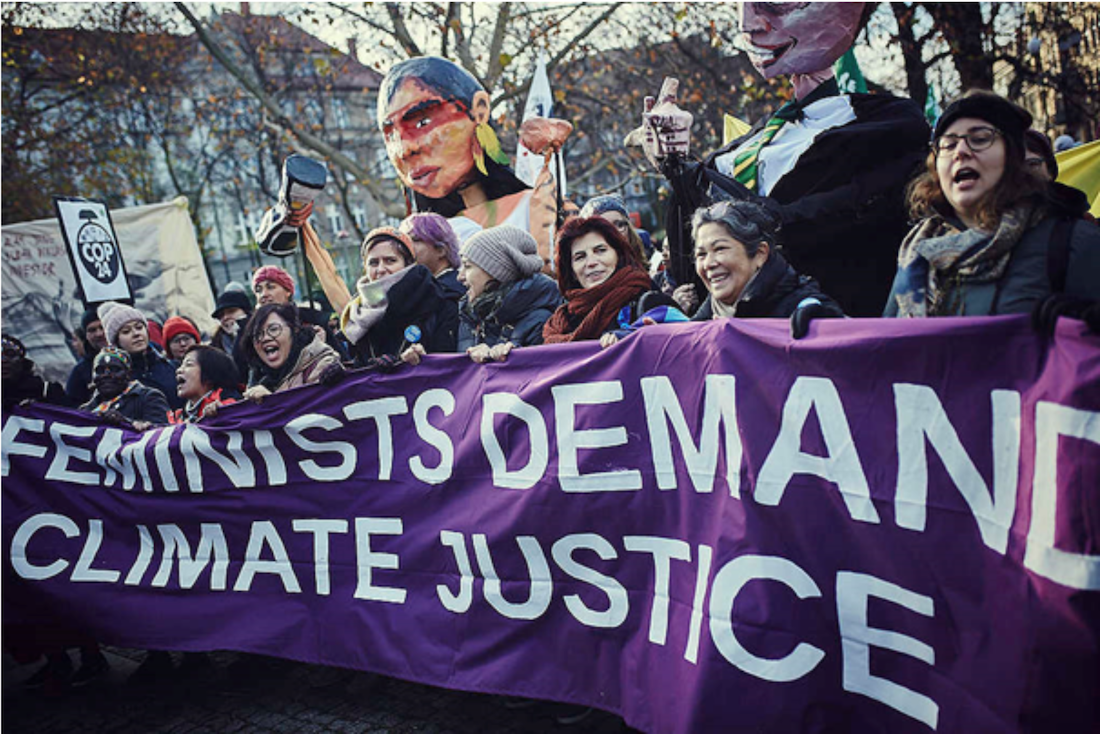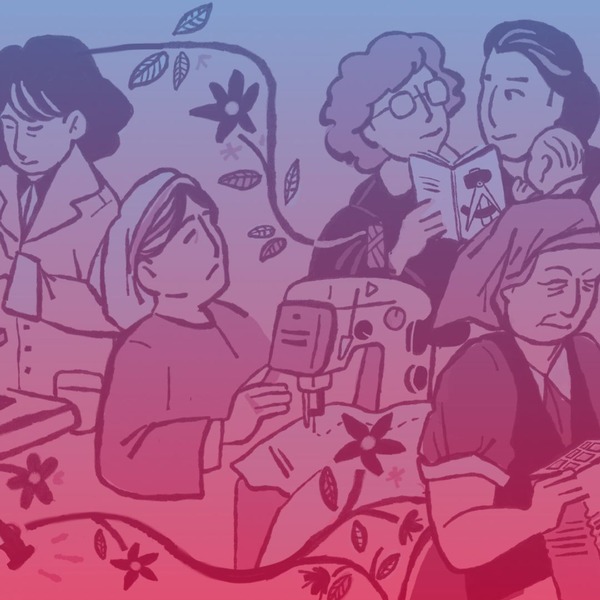
Several thousand people march in the climate march at COP24 in Katowice, Poland.
Photo: © Greenpeace
Written by Sumudu Lankika Ginigathgala
Climate change affects everyone. The European Union is home to about seven per cent of the citizens of the world, yet the European Union accounts for 17 percent of the overall global consumption. Evaluations from the Swedish Ministry of Sustainable Development have also shown that the member states together leave a larger ecological footprint than entire Asia. However, women and men may possibly experience the impacts of climate change in different ways, with women randomly affected due to gender inequalities.
Climate change has perpetually remained a major political issue. Representations of the civil society in all different forms have grown to become an unstoppable force for Climate Action in recent years. Feminists, activists, civil society movements and organisations have all continuously come together to fight for gender equality and women empowerment through vocal demands within all processes and policies of the United Nations Framework Convention on Climate Change (UNFCCC). Gender and climate change was a key topic on display during the recent Conference of the Parties, COP24 in Katowice.
It is extremely important to highlight that climate disasters affect women and girls in the worst ways because of gender inequality. Climate change affects women in an extremely different way than men. Foremost, the effects of climate change are asymmetrically scattered, with inadequate burdens on women. As an outcome of women’s greater dependence on natural resources, women are extremely at risk of being affected by the changing climate. Due to culture and tradition in many parts of the world, women are key nutrition providers as well as caregivers. For example, if water is not within reach, women walk for hours to get water for their households, they collect firewood and crops to grow in order to feed the hungry mouths in their households. Women also face a greater probability of poverty. In addition, there are organizational and institutionalized inequalities within societies worldwide that act as walls. In order to operate responses to climate change it is necessary to understand and raise awareness on how gender differences impact different matters. The latter entails a lot of different factors, such as institutional structures and decision-making processes.
An integral part of climate policy and action is essential gender mainstreaming constructed on gender analysis. Covering around 70 percent of the world’s one billion poorest people, women are excessively at risk of being affected by the changing climate. Studies present that women and children are more likely to risk their lives during a natural disaster. The International Office on Migration (IM) reports that since 2008 climate change effects have displaced around 26.4 million people per year from their homes. This is equivalent to the displacement of one person every second, can you imagine that? The risk of displacement has an upward trend as more helpless people are living in areas that are prone to disaster and in many circumstances due to gender inequality.
The struggle for climate justice goes hand in hand with gender justice and it is not wrong to say that gender justice is a mechanism for climate justice. During COP24 there was a record number of female delegates elected to the position of Chair or Co-Chair of the technical and decision making bodies established under the UNFCCC. The female representation was around 38 percent or more, which clearly shows that there is progress towards achieving gender balance. However, there is still much more to be done. In reality, is not about the number of seats women get in decision making. Rather, it all comes down to the decisions that are taken and how effectively they are implemented in order to create a sustainable future. COP24 is over but feminists, women’s movements, networks, collectives and other civil society organisations are continuing the battle to make their voices heard.

 The geopolitical role of the Sahel: the influence of the EU and other Great Powers in the Malian crisis
The geopolitical role of the Sahel: the influence of the EU and other Great Powers in the Malian crisis  Is Nuclear Disarmament Still a Dream? The Third Meeting of State Parties in Perspective
Is Nuclear Disarmament Still a Dream? The Third Meeting of State Parties in Perspective  Strategic Saboteur: Hungary’s Entrenched Illiberalism and the Fracturing of EU Cohesion
Strategic Saboteur: Hungary’s Entrenched Illiberalism and the Fracturing of EU Cohesion  The invention of development: power, narrative, and the afterlife of Truman’s speech
The invention of development: power, narrative, and the afterlife of Truman’s speech 


